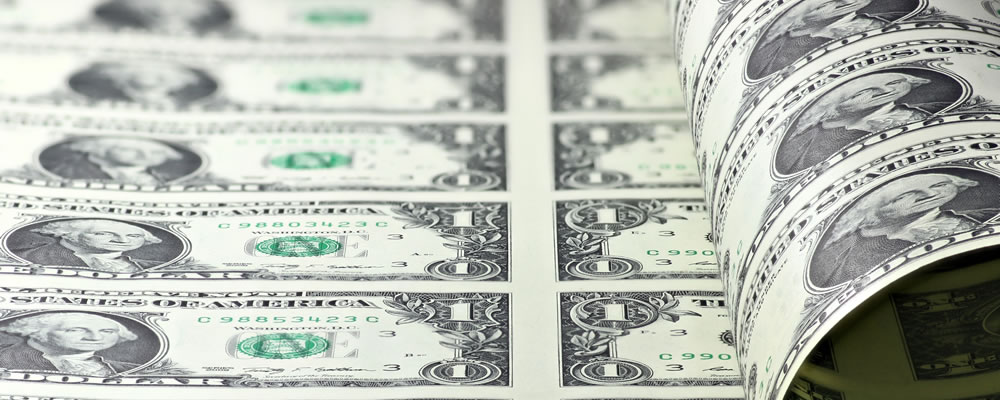Euro to US Dollar Exchange Rate Remains Flat near Week’s Lows amid ECB Uncertainty
Despite multiple disappointing US ecostats this week, the Euro to US Dollar (EUR/USD) exchange rate trends lower. This has been largely due to the US Dollar (USD) rebounding from its worst levels, and Central Bank speculation has made investors hesitant to buy the Euro (EUR).
Last week’s EUR/USD movement was fairly limited, and the pair closed the level just slightly lower near the level of 1.1371.
This week though, the US Dollar’s rebound has left the pair almost a cent lower. Yesterday, EUR/USD touched on a fortnight low of 1.1271, and the pair was trending at around the level of 1.1282 at the time of writing on Wednesday.
Demand for the Euro has been limited due to a lack of notable support for the shared currency in recent sessions. Eurozone data has been mixed, and European Central Bank (ECB) speculation has made investors hesitant to move too much on the currency.
However, the US Dollar has struggled to capitalise, due to this week’s US data being generally disappointing.
Euro (EUR) Exchange Rates Fail to Recover amid European Central Bank (ECB) Speculation
At the beginning of the week, investors sold the Euro versus a recovering US Dollar, and since then the latest Eurozone news has not been enough to help the shared currency to recover.
The biggest news for Euro investors this week has been European Central Bank (ECB) developments.
The bank announced this week that International Monetary Fund (IMF) Chairwoman Christine Lagarde had been nominated to succeed Mario Draghi as ECB President when his term ends later in the year.
As Lagarde is seen as a continuity candidate for the ECB and will likely continue the dovish bias seen during Draghi’s tenure, the news didn’t exactly bolster demand for the Euro.
However, the Euro didn’t plunge either, indicating that markets were generally satisfied with the decision.
Investors are also hesitant to move on the Euro due to uncertainty on when the ECB will implement more dovish monetary policy.
There are still lingering bets of a rate cut being possible as soon as this month, which is keeping pressure on the shared currency ahead of upcoming data.
US Dollar (USD) Exchange Rates Struggle to Push Higher amid Fed Rate Cut Bets
The US Dollar rebounded when markets opened this week, thanks to the US and China reaching another truce on trade tensions at the weekend’s G20 Summit in Osaka. However, the US Dollar has been unable to keep climbing.
Bets are firm that the Federal Reserve will cut US interest rates during its policy decision this month, and despite officials downplaying the possibility some investors still speculate that a 50 basis point rate cut is possible.
This has been partially due to recent weakness in US data, and this week’s US data has continued the trend of printing even worse than expected.
Yesterday saw the publication of a slew of US ecostats, including employment data from ADP, trade balance data, and non-manufacturing PMI data from ISM. All of these stats fell short of expectations, worsening concerns that the US economy may still be slowing.
On top of this, while the US-China trade truce was seen as good news, market hopes for relations to improve are still limited as the US continues to push protectionist rhetoric.
Euro to US Dollar (EUR/USD) Exchange Rate Investors Await US Data for Fed Rate Cut Bets
While US Dollar movement may be limited today as US markets are closed to observe the 4th of July bank holiday, investors are still focusing on Federal Reserve interest rate cut bets.
As a result, upcoming key US data is most likely to drive Euro to US Dollar (EUR/USD) exchange rate movement in the coming sessions.
Tomorrow will see the publication of June’s US Non-Farm Payroll report. This US job market report is typically highly influential for the Federal Reserve outlook, so if the data surprises investors it could cause a shift in Fed bets.
Weaker than expected US jobs data may cause bets of a 50 basis point interest rate cut to rise, while stronger data may cause rate cut bets to be delayed slightly. This would cause stronger US Dollar demand.
German factory orders data from May, also due for publication tomorrow, could influence the Euro’s movement.
However, further developments regarding the European Central Bank (ECB) is more likely to cause shifts in the Euro to US Dollar (EUR/USD) exchange rate.



